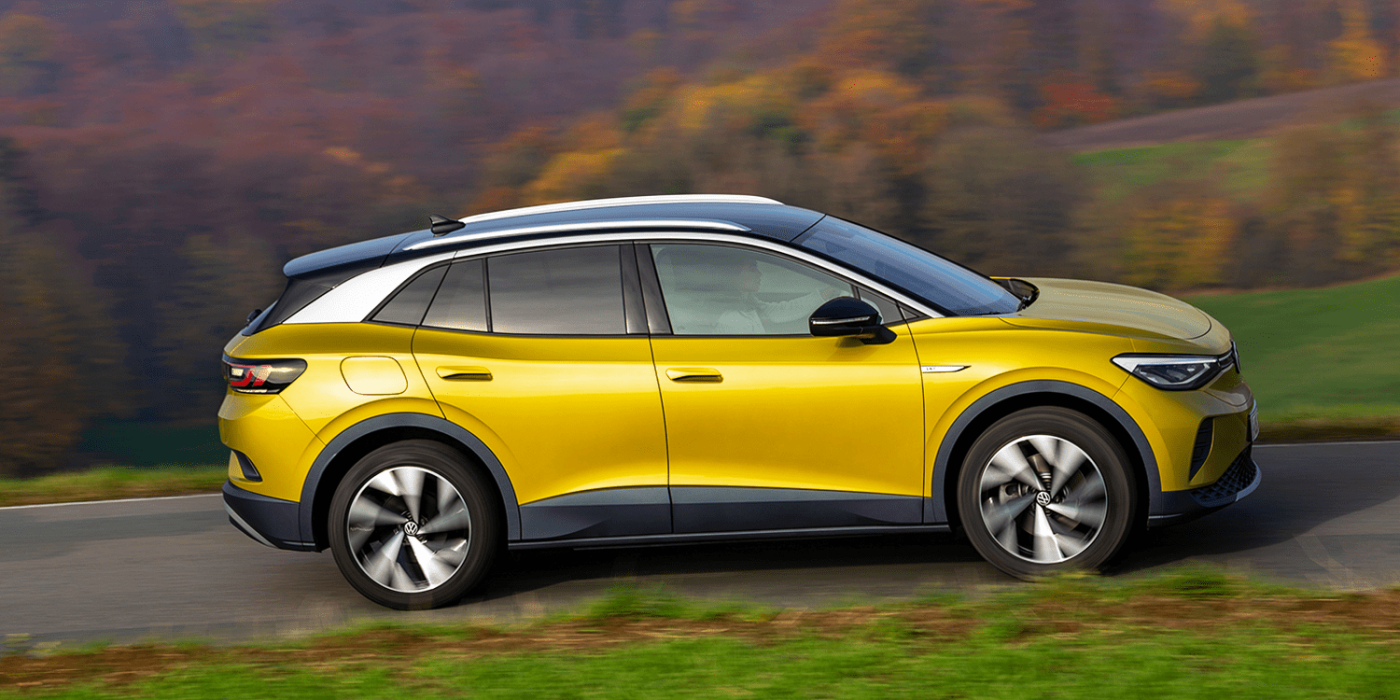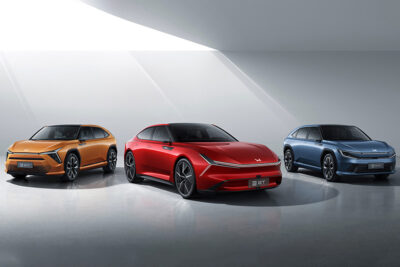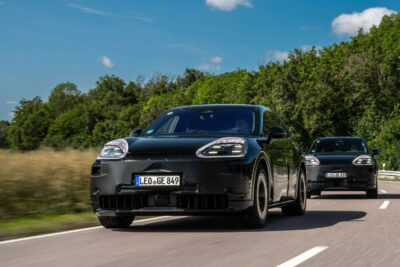Volkswagen subsidiaries significantly raise EV sales
The Volkswagen brands VW, Audi, Porsche, Skoda and Seat have published their sales figures for the past year. All of them were able to significantly increase sales of battery-electric cars and plug-in hybrids – while overall sales declined in some cases.
The core VW brand delivered 263,000 fully electric vehicles and 106,000 plug-in hybrids last year. The share of BEVs and PHEVs in total deliveries has almost doubled to 7.5 per cent (2020: 4 per cent). Of the 4.9 million vehicles across all drive types (-8.1 per cent compared to 2020), 369,000 had a charging plug.
In 2020 as a whole, there were 214,000 electrified vehicles, of which 134,000 were BEVs and 80,000 were PHEVs. “Volkswagen is continuing to press ahead with the transition to e-mobility despite the limited supply of semiconductors,” said Ralf Brandstätter, CEO of the Volkswagen brand. “In a very short time, we have reached a top position for all-electric vehicles in Europe. With our ACCELERATE strategy and the expansion of the model portfolio, we will continue to increase the pace of the e-mobility offensive.”
While the global share of electric vehicles was 7.5 per cent, it was much higher in Europe at 19.3 per cent. According to Wolfsburg, one in four Volkswagens in Germany was already equipped with a charging port. According to Klaus Zellmer, member of the board of management for sales, the total order backlog in Europe is at an all-time high of 543,000 vehicles, 95,000 of which are fully electric ID. models.
Already in its first full year, the ID.4 is the best-selling electric VW. Of the 263,000 BEVs, the electric SUV accounted for 119,650 units, followed by around 76,000 ID.3 and 41,500 e-Up. VW reports sales of the large Chinese-exclusive SUV ID.6 at just under 18,000 units.
The premium brand Audi sold a total of 81,894 fully electric cars in 2021, 57.5 per cent more than in the previous year. The Ingolstadt-based company had started 2021 with only the e-tron quattro (and its Sportback coupé offshoot) built in Brussels, but in the meantime the Gran Turismo e-tron GT built in Neckarsulm and the Q4 e-tron from the VW plant in Zwickau have supplemented Audi’s BEV range. Since Audi sees the e-tron GT and RS e-tron GT as well as the Q4 e-tron and Q4 e-tron Sportback as different models, Audi says it launched four new e-models last year.
Audi does not even mention the sales of plug-in hybrids separately in the press release. Across all drive types, Audi sold 1.68 million vehicles, a decline of 0.7 per cent compared to 2020 – although Audi was still on course for a record after the first half of the year with 981,681 vehicles. However, the shortage of semiconductors had a stronger impact in the second half of the year than expected.
“We’re looking to the future with confidence,” says Hildegard Wortmann, Member of the Board of Management for Sales and Marketing at AUDI AG. “With ‘Vorsprung 2030,’ we have defined a clear strategy – our courage to make lasting changes is being rewarded: high demand for electric vehicles from Audi confirms our early decision in favor of zero-emission drive systems.”
In contrast to the other brands, Porsche was able to increase sales by eleven per cent to 301,915 vehicles. A total of 41,296 vehicles of the all-electric Taycan went to customers, more than twice as many as in 2020. In Europe, where Porsche sold a total of 86,160 vehicles, almost 40 per cent were electrified – i.e. a PHEV or a Taycan.
“The overall result is very promising and shows the strategy to further electrify our fleet is working and is in line with demand and the preferences of our customers. At the same time, unit sales are not the decisive factor for us. Rather, we want to stand for exclusive and unique customer experiences and will continue to expand these worldwide,” says Chief Sales Officer Detlev von Platen.
Skoda managed to deliver 44,700 units of the Enyaq iV electric SUV in 2021. This means that the MEB SUV built at the headquarters in Mlada Boleslav accounted for five per cent of all Skodas sold. In total, the brand was able to sell 878,200 cars; in 2020, sales were still at 1,004,800 vehicles – a decline of 12.6 per cent. The reason for this is again the chip crisis.
In addition to the 44,700 Enyaq iV, there were 4,400 units of the Citigo iV small electric car. Skoda does not mention the plug-in hybrids in the press release, but the Octavia and Superb series, which are offered as PHEVs, suffered sales declines of more than 20 per cent each. Skoda boss Thomas Schäfer described 2021 as “one of the most challenging years in the history of Skoda Auto”.
Seat and Cupra sold a total of 60,600 electric cars and plug-in hybrids in 2021, more than four times as many as in the previous year (14,700 vehicles). Of these, however, most vehicles are likely to be plug-in hybrids. Seat does not give exact figures for the Mii electric small car. The only other BEV offered by the Spanish company is the MEB model Cupra Born, which was only delivered in November and December. However, the Spanish company already handed over 3,300 Borns to customers in these two months. This was a “promising start”, which Cupra wants to build on in the coming months.
“2021 was not the year we expected,” says Seat and Cupra CEO Wayne Griffiths. “After working hard to fight the effects of the COVID-19 crisis, our activities were severely affected by the semiconductor shortage. Demand for SEAT and CUPRA products has returned to pre-pandemic levels, and the shortage of semiconductors is creating frustration among our customers due to the high delivery times they have to face.”
volkswagen-newsroom.com, audi-mediacenter.com, skoda-storyboard.com, seat-mediacenter.com, porsche.com






1 Comment